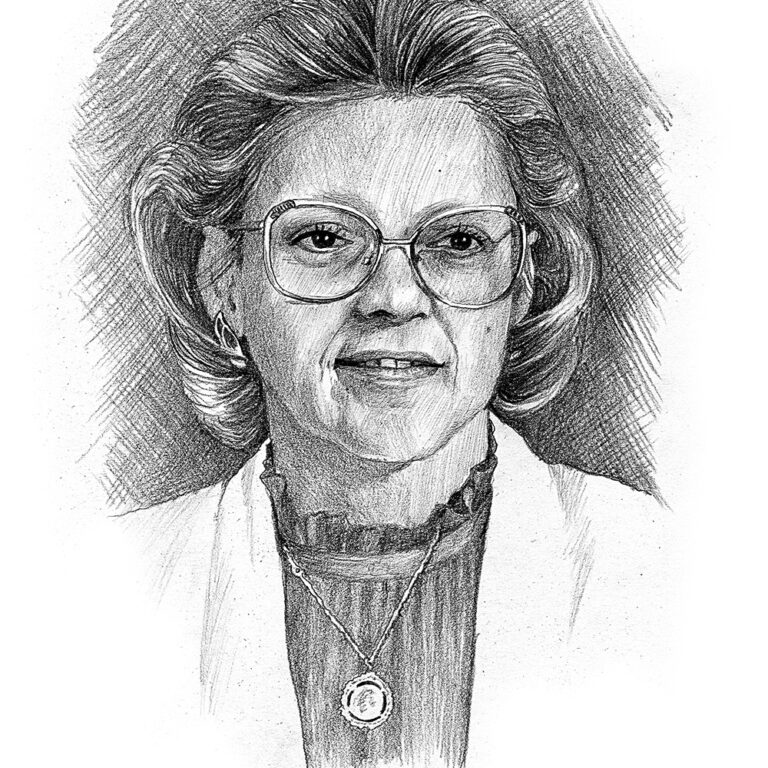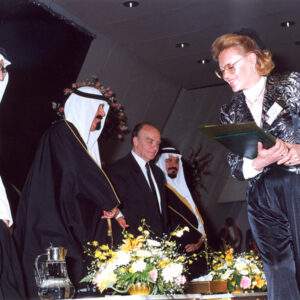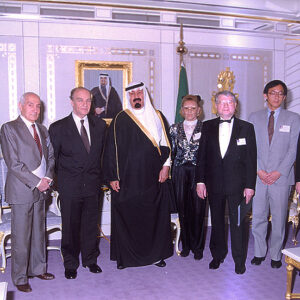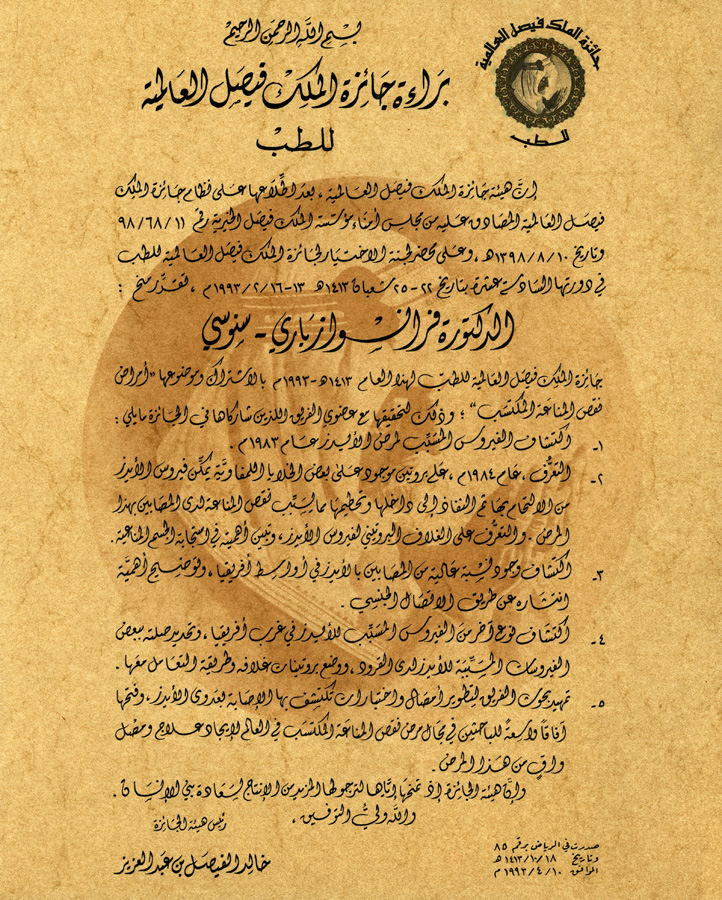

Professor Francoise Barre Sinoussi
Co-Laureate of the King Faisal Prize in Medicine 1993
Topic: "Acquired Immunodeficiency Diseases"
Even if our knowledge of AIDS disease has enormously increased during those ten years, there is still a long way to cover, in particular to arrive at effective vaccines and therapies

Françoise Barré-Sinoussi obtained her doctorate degree from the University of Sciences in Paris in 1974, followed by post-doctoral training at the National Institutes of Health and the National Cancer Institute in Bethesda, Maryland, USA. She joined the Pasteur Institute in Paris in the early 1970s, where her attention quickly turned to a particular group of viruses known as the retroviruses. An outstanding leader in that field for many years, Senoussi is currently the Director of the Retrovirus Biology Unit at the Institut Pasteur. Her laboratory is involved, among other things, in studies on the impact of the host’s innate defenses in controlling HIV/AIDS, as well as mother to child transmission.
Professor Senoussi is most noted for her role in the initial identification of HIV-1, the virus which causes AIDS. Her work is highly cited in the scientific literature, and she is particularly recognized as the first author of the 1983 publication that reported the discovery of the retrovirus HIV, which was later renamed HIV-1, in an AIDS patient. This discovery did not only pave the way for the development of blood tests to screen out blood donors, but also led directly to rapid methods to diagnose HIV infected individuals, as well as methods to screen potential drug candidates for anti-HIV activity. Senoussi carried out fundamental research on the impact of the host’s innate defenses in controlling AIDS and on mother-to-child transmission.
Senoussi initiated – since the 1980s – collaborative research in developing countries, where she managed multidisciplinary networks that helped establish centers for training on the diagnosis and control of AIDS in several African and Asian countries such as Tunisia, Cambodia, and Vietnam. She has been constantly and deeply committed to establishing permanent links between basic research and clinical research with the aim of achieving concrete improvements in the areas of prevention, clinical care and treatment of AIDS. However, her scientific contributions are not limited to the discovery of the AIDS virus (HIV-1). Over the past 20 years, she also participated actively in studies of other retroviruses, while being at the forefront of HIV vaccine and prevention research.
Throughout her career, Professor Senoussi strived to bring together research, public health and teaching. She authored or co-authored more than 180 scientific publications. She has also constantly sought to share her knowledge, and has given numerous invited lectures, participated in over 250 international conferences and trained many young researchers. Senoussi also contributes actively to scientific societies and committees both at the Institut Pasteur and at other AIDS organizations, such as the National Agency for AIDS Research in France. She also served as consultant to the WHO and UNAIDS-HIV and is an elected member of the New York Academy of Science. She is also a member of the Virology Committee of the French Agency for AIDS Research (ANRS) and a member of the Medical Society of Paris’s Hospital.
Professor Senoussi’s outstanding contributions were recognized by more than 10 national and international prizes, in addition to other honors, including the Award of the French Academy of Medicine in 1988 and France’s Chevalier of the Order of Merit in 1990.
This biography was written in the year the prize was awarded.
- She was appointed as the President of the International AIDS Society in 2012.
- She received many awards and honors including:
- Chevalier of the Legion of Honor in 1996.
- Officer of the Order of Merit in 2002.
- Officer of the Legion of Honor in 2006.
- Nobel Prize for Physiology or Medicine in 2008.
- Honorary Doctor of Science degree from Tulane University in 2009.



